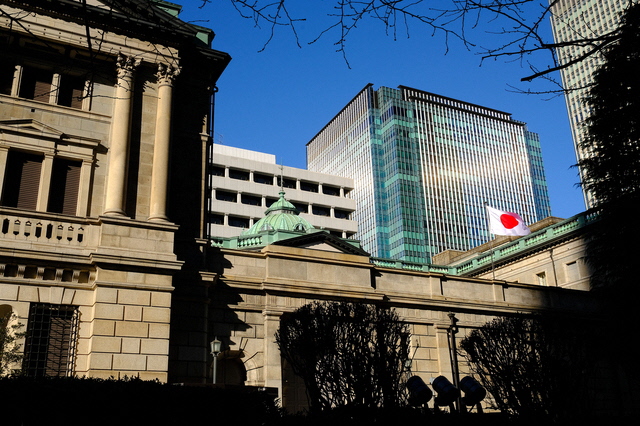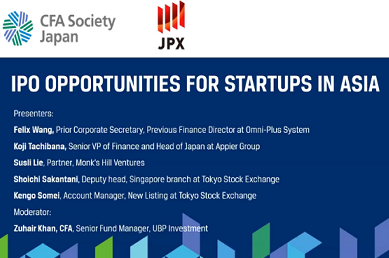Insights
The ‘Buy Stocks on Halloween’ rule of thumb, is it valid this year?

Halloween came again this year on October 31. In the stock market, there is an anomaly (rule of thumb) that the stock index tends to rise from the end of October to the end of April the following year. Looking at the average percentage change over the past six months since May 1949, the Nikkei 225 is up 7.8% and the Dow Jones Industrial Average is up 7.3%. Some believe that now is the time to opportunity to buy shares, as the market is noticeably SAGGING.
The rule of thumb that stock prices tend to adjust during Halloween at the end of October every year and then rise during the following spring is called the “Halloween effect” in the stock market.
This effect is in part a reaction to the significant depreciation in October. The oldest was “Dark Thursday” on October 24, 1929, which caused the Great Depression. On October 19, 1987, “Black Monday” occurred against the backdrop of the US twin losses and other factors, and US and Japanese stock prices plummeted. In 2008, the “Lehman Shock,” caused by the bankruptcy of Lehman Brothers, a major US investment bank, on September 15, caused the Nikkei Stock Average to fall 34% in the two months from September to October.
The ups and downs from the end of October to the end of April the following year in these three cases show the strength of the empirical evidence. The Dow Jones Industrial Average rose 2% after the Great Depression. After Black Monday, the Nikkei Stock Average and the Dow Jones Industrial Average rose 18% and 2%, respectively. After Lehman Brothers, the Dow Jones Industrial Average continued to decline, but the Nikkei Stock Average rose 3%.
When averaged over the period since May 1949, when the Nikkei Stock Average began its calculation, the Japanese and US indices have both performed the best since the end of October, at more than 7%. The ups and downs from the end of October to the end of April the following year amount to 58-16 (78% win rate) for the Dow Jones Industrial Average and 54-20 (73%) for the Nikkei Stock Average.
On the other hand, the lowest 6-month increase is from the end of April (1.8% for the Nikkei Stock Average and 0.8% for the Dow Jones Industrial Average). Investing from the end of April to the beginning of fall tends to be a bad time to invest, so the well-known market adage “Sell in May and go away, don’t come back until St. Leger day” (Sell in May, don’t come back until mid-September) may make sense.
The period from the end of October to the end of April of the following year is also marked by recent years of high performance. From end-October 2020 to end-April 2021, both Japanese and US stock prices rose over 20% due to the end of uncertainty caused by the COVID-19 pandemic. From the end of October 2014 to the end of April 2015, the Nikkei Stock Average rose 19% on the back of additional easing by the Bank of Japan associated with the Abenomics market.
Shingo Ide, chief stocks strategist at Nissay Research Institute, points out, “Foreign investors sell tax savings in preparation for year-end tax returns. After that, the stock price is likely to rise as buying long of another stock is continuously put in after the new year.”
The market is noticeably expecting this year to be faithful to the Halloween effect. The first reason is expectations for financial results. The economic resumption due to the COVID-19 pandemic settlement is clear. Ikuo Mitsui, fund manager at Aizawa Securities, noted, “We will focus on the electrical equipment and precision industries, where semiconductor inventories are bottoming out and the earning environment is improving.” Fanuc and Advantest are scheduled to announce earnings on October 31, Toyota Motor on November 1, and Apple on November 2. Jun Morita, research director at Chibagin Asset Management, says, “Market sentiment will improve if upward earnings revisions continue in Japan and the US”
The start of the new NISA (Nippon Individual Savings Account) system in January 2024 is also a supporting factor for stock price rise. One opinion is “Individuals buying long of another stock with an eye on the medium to long term will likely lead to a stock price rise” (Chief Equity Market Analyst, Tokai Tokyo Research Center).
However, there are aspects of the macro environment that do not warrant optimism. Fumio Matsumoto, chief strategist at Okasan Securities, says that while the index will rise moderately, “The economic recovery following the end of the COVID-19 pandemic has slowed to a crawl, and we are not optimistic that corporate earnings for fiscal year 2024 will see only modest gains.”
Concerns remain about rising US interest rates, the situation in the Middle East, and the US government shutdown of Congress, including its impact on corporate earnings. It may be necessary to view the market with a sober eye and not get too carried away by the festivities.
Related links






